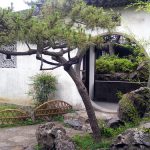A traditional Chinese wedding begins with the proposal, usually facilitated by a matchmaker who acts on behalf of the families of both the potential bride and groom. The main parties in these negotiations are the parents rather than the couple. Once the prospective parties are in agreement, the betrothal process begins. When an agreement is reached and engagement tokens have been presented, the families would then decide on the most favourable auspicious day for the wedding ceremony.
Two important rituals take place on the wedding day and they are both symbols of the bride and groom’s progression into adulthood. The ‘hair dressing’ ritual concerns the bride who on the dawn of her wedding bathes with water that has been mixed with pumelo that is believed to purify her from evil influences. This is followed by the bride being attended to by a person referred to as the ‘good luck woman’, who styles her hair in a traditional manner while speaking words believed to bring about good fortune. The ‘capping’ ritual involves the groom who puts on a red sash and a pair of red shoes before going and kneeling at the altar of his family. The groom’s father then places a cap adorned with cypress leaves on his son’s head. Since red is symbolic of joy, the bride and groom usually have a lot of red in their attire.
The wedding itself is a simple ceremony which centres on paying homage to family ancestors, ‘Heaven and Earth’ and ‘Tsao-Chun’, the Kitchen God. The ceremony also includes the offering of tea with two lotus seeds or red dates to the parents of the groom. An important element of the wedding is the subsequent banquet where family and friends join together to celebrate the union.
Travellers looking for luxury accommodation can stay at such Shanghai five star hotels as Millennium Hongqiao Hotel Shanghai which offers the very best in facilities and services. Located in the Hongqiao area, this luxurious Shanghai hotel caters to business and leisure travellers alike.



